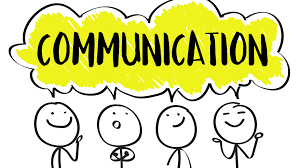Tips to Improve Your Ability to Effectively Communicate
By: Jacob Lowe, MS, TLLP
Throughout our lives, we are tasked with communicating and collaborating with those we surround ourselves with. Whether it be our family, friends, colleagues, or co-workers, the strength of the relationships we share with them is dependent on how capable we are of communicating effectively. We all strive for meaningful connections and positive interactions, yet often find ourselves grappling with barriers that hinder our ability to do so.
The Silent Struggles: Barriers to Effective Communication:
In our pursuit of maintaining these vital connections, we encounter various obstacles that impede our ability to convey our thoughts and feelings, including:
- Thoughts of worry related to how someone may react when we say what we are thinking
- The fear of triggering a negative response from others can lead us to hold back on expressing our true thoughts, which ultimately inhibits genuine communication.
- Obsessing and ruminating over “saying the right thing”
- We often find ourselves caught in a loop of overthinking, analyzing every word and phrase, striving for perfection in our communication, and inadvertently creating unnecessary stress.
- Bouts of anxiety that cause physical and mental discomfort
- The mere anticipation of a difficult conversation can evoke feelings of anxiety, which can have noticeable effects on both our bodies and minds, further deterring us from engaging in confrontation.
It is within this web of concerns and anxieties that the concept of confrontation finds itself entangled. The way that confrontation has been framed for us through media portrayals, stories we hear from those around us, and our own past experiences, all contributes to its reputation as something to be avoided. Instead of advocating for what we believe, we opt for the path of least resistance to “maintain harmony”, sidestepping potential conflicts that we fear may disrupt the balance of our relationships.
As the avoidance of confrontation becomes our default response, the control that our fears and anxieties wield over our lives strengthens. However, it's crucial to recognize that confrontation, when approached in a constructive and thoughtful manner, can be a powerful catalyst for personal growth, resolution, and enhanced relationships. In fact, confronting our fears head-on can open doors to transformative opportunities that remain hidden when we shy away from uncomfortable conversations.

Navigating Confrontation
As we begin to take steps towards embracing confrontation, it is worth noting that while the path to conquering discomfort may be challenging, the potential outcomes that come from doing so can greatly benefit yourself and those around you. By reframing our perception of confrontation, and cultivating a mindset of growth and opportunity, we can transform what once seemed like an insurmountable obstacle, into a tool for positive change.
To fully harness the potential of confrontation, we must shift our perspective from one of fear and avoidance, to one of empowerment and growth. Rather than viewing it as a dreaded ordeal, we can see it as an opportunity to express ourselves authentically, resolve conflicts, and strengthen connections. Through doing so, we allow ourselves the chance to develop new positive associations with engaging in confrontation that may outweigh our former negative associations that had maintained our fears in the past.
Practice Strategies for Healthy Confrontation
- Focus on Solutions: Approach confrontation with a problem-solving mindset. How do you believe confrontation could be mutually beneficial? What can both you and the party that you are confronting contribute towards resolving the underlying issue at hand?
- Setting Healthy Boundaries: Establish clear boundaries to ensure that the confrontation remains respectful and productive. Examples of these boundaries include:
- “I ask that you allow for me to fully express my thoughts without interruption before you respond to what I have to say.”
- “Should there be a point in which you would like to take a break from this conversation, please let me know.”
- “Let’s try our best to make sure we are using respectful, and non-inflammatory language while we have this discussion.”
- Open and Honest Communication: Embrace transparent communication as the foundation of healthy confrontation. Take time to identify what you primary goals are, and how you can avoid “beating around the bush” when discussing them in advance.
- Rehearsal: Find someone that you can spend time with in advance practicing how you may go about putting your thoughts into words. Experiment with different tones and postures, and have the person you are rehearsing with do so as well. Practice has the potential to assist you in clearly articulating your points, and boost your confidence.
- Seek Mediation: In situations where emotions run high or communication stalls, consider involving a neutral third party to facilitate the conversation and guide it towards a resolution. Having a third party may also assist both parties in making sure the points they are making are understood.

When we make the decision to embrace confrontation, we provide ourselves with the opportunity to authentically connect with those around us. Through doing so, we can show those we interact with how we would like to be treated. Along with this, through finding ways to navigate conflict with others, we develop ways in which we can further confront our own internal conflicts.
Ultimately, personal growth flourishes as we confront our fears head-on. While doing so may likely cause discomfort initially, your voice, your ability to grow, and your relationships, are all worth the effort that it takes to navigate confrontation in a healthy and constructive manner.

